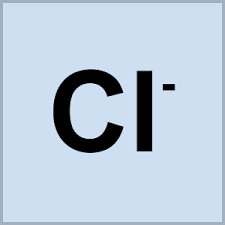chloride
英 [ˈklɔː.raɪd]
美 [ˈklɔːr.aɪd]
- n. 氯化物
- n. (Chloride)人名;(英)克洛赖德
使用频率:

记忆方法
记忆“chloride”的方法是将它拆解为“chlor”和“ide”。首先,记住“chlor”与“chlorine”(氯气)有关。然后,将“ide”作为后缀,它通常表示“...化物”。所以,可以将“chloride”想象为氯元素的化合物。这个联想可以帮助你记住“chloride”这个词及其含义。
以上内容由AI生成, 仅供参考和借鉴
英语词源
- chloride (n.)
- "compound of chlorine and another element," 1812, coined by Sir Humphrey Davy (1778-1829) from chlorine + -ide on the analogy of oxide.
权威例句
- 1. The scientific name for common salt is sodium chloride.
- 食盐的学名是氯化钠。
- 2. Common salt is made up of 40% sodium and 60% chloride.
- 食盐由40%的钠和60%的氯化物构成。
- 3. The fish or seafood is heavily salted with pure sodium chloride.
- 鱼或海鲜被抹了厚厚的纯盐腌制起来。
- 4. a saturated solution of sodium chloride
- 氯化钠饱和溶液
- 5. Ammonium chloride under thermal dissociation forms ammonia and hydrogen chloride gases.
- 氯化铵在热力分解作用下形成氨和氯化氢气体.